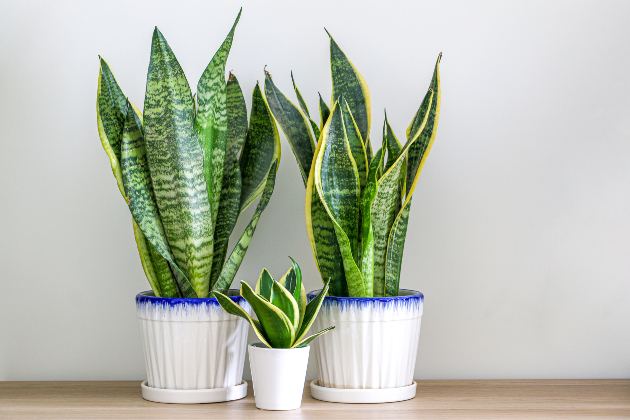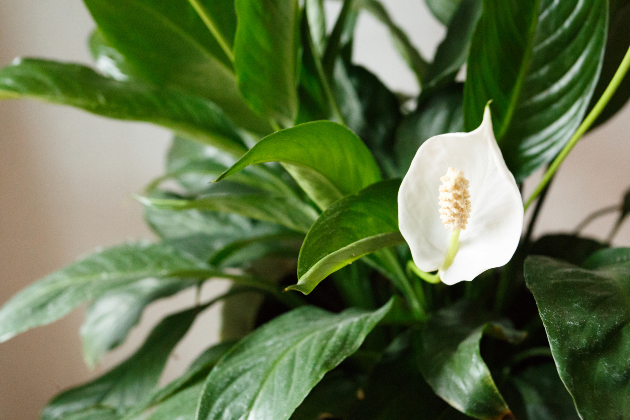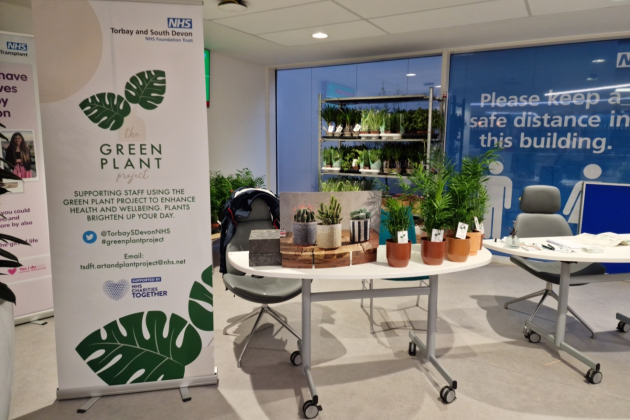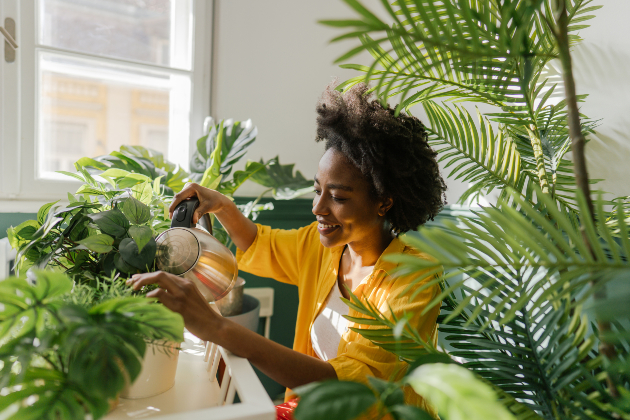Can houseplants really improve our physical and mental health? According to the Royal Horticultural Society (RHS), the answer is a resounding yes.
We all know how good it feels to get back to nature, especially when our physical or mental health needs a boost. Houseplants are a great way to bring the healing power of the outdoors - inside.
This is especially true for those who live or work in urban areas, where plants can help to improve air quality as well as overall wellbeing.
What are the benefits?
Experts at the RHS have found that houseplants can make us healthier and happier. They can:
- improve mood and lower stress levels
- reduce blood pressure, fatigue and headaches
- boost productivity, especially in office environments
- increase pain tolerance when placed in hospital settings.
Research shows patients with plants in their rooms reported less post-operative pain.
-
Read next: 5 ways to help beat burnout
Picking a plant
The RHS advises choosing plants that will tolerate shade and fluctuating temperatures. These are usually widely available and inexpensive.
Here are 3 hardy houseplants to get you growing:
Spider plant (Chlorophytum comosum)

A great choice for beginners, spider plants are low maintenance and easy to grow, says BBC Gardeners World.
Keep them healthy by ensuring the compost is moist during spring and summer, but reduce watering in the winter months. Remove any leaves with brown tips; make sure to dust and mist the plant every so often; and feed once a month during the growing season.
You can grow them in a bright spot out of direct sunlight, and they can tolerate some shade.
Snake plant or Mother-in-law’s tongue (Sansevieria trifasciata)

BBC Gardeners World calls this the perfect houseplant. It can survive long periods of neglect, is slow growing, needs little watering, and isn’t fussy about its location, tolerating draughts and dry air. “This makes it a great plant for beginners as it's virtually indestructible,” they say.
Varieties include Hahnii, which grows to only 25cm tall, and Laurentii, which can reach 1.2m. Water sparingly and only when the compost has dried out.
It will benefit from monthly liquid feed from April to September and an occasional dusting of its leaves – just be careful not to damage the leaf tips.
Peace lily (Spathiphyllum wallisii)

These elegant plants are easy to care for and even produce occasional white flowers, known as ‘spathes’. They prefer a bright spot out of direct sunshine but will also endure some shade too.
BBC Gardeners World suggests watering them regularly, keeping the compost moist but not wet. If the plant is short of water, the leaves will droop, but usually recover once watered. Snip off dead flowers or old, yellow leaves and repot every spring.
- Read next: 5 simple exercises for neck and back pain
The Green Plant Project
Nina Henton-Waller has always been interested in finding ways to improve mental health and wellbeing within hospitals.
“During the pandemic lockdowns, I’d begun to get really interested in houseplants and at the last count, we had 56,” says Nina. “My wife suggested we do something with plants at work, bringing the green indoors, which I thought was a great idea."

Above: Nina Henton-Waller
Initially, she got some large plants for the main entrance at Torbay Hospital, where she works as a sister on the acute medicine unit. “It’s a hub for both patients and staff, but it felt very clinical and not at all homely,” Nina explains. “People enjoyed seeing them there.”
Inspired to go bigger, she set up the Green Plant Project. “Staff had been through the pandemic and morale felt very low,” she recalls. “I went back to the drawing board to see what we could do to help.” After meeting Torbay and South Devon NHS Foundation Trust’s sustainability lead, they decided to offer every member of staff their own plant to look after at work, providing it was safe – for example, clinical areas were excluded.

To fund the project, they secured a £25,000 grant from NHS Charities Together. “Without that significant amount of money, we wouldn’t have been able to do it,” Nina says.
When they announced the project, asking staff to email if they were interested in having a pot plant, Nina was astonished at the response. “We expected a couple of hundred at most,” she recalls. “But we got 1,200 requests.” Next, they found a supplier, who offered a few different house plants, all suitable for a warm environment.
It improves wellbeing and helps people feel happier at work
Plants were given out during a week in December 2022. “I’d never seen a queue like it,” says Nina. “In one memorable moment, I spotted the trust’s chief executive at the back, who had come to get her plant.”
For Nina, the initiative has had a myriad of benefits. “I think it improves everyone’s wellbeing,” she says. “Concentration increases and the air quality is better. It’s a positive distraction that helps people feel happier at work.”
Photo of Nina: Liam Meyer








